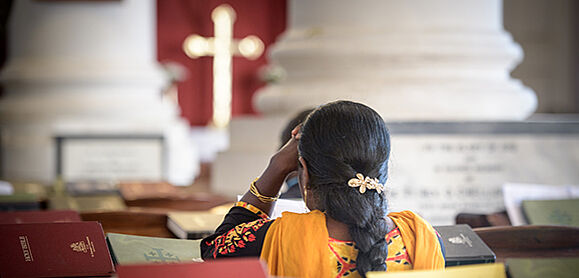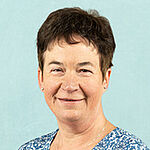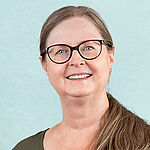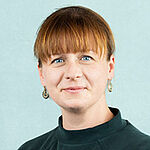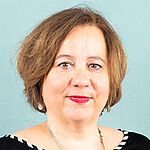The Studies in the Middle East Programme (SiMO) offers students the opportunity to spend an ecumenical study year at the evangelical Near East School of Theology (NEST) in Beirut. Future theologians are not the only ones who can benefit from this study trip.
The Evangelical Mission in Solidarity (EMS) connects Christians around the world to form a significant fellowship. It creates opportunities for encounters, encourages international exchange and invites people to be active with others.
The pastor from Ghana, working as an ecumenical employee in a community in South Africa; the German theology student, studying “Interreligious Studies” in Japan; the community group from India, establishing new ecumenical contacts through the EMS Bible reading project: they all share their experiences, knowledge, dedication and faith with people from other countries, denominations and cultures. They have close relationships with each other, work and pray together, and learn from one another. One of the core roles of the EMS is to make this kind of exchange across borders possible.
International Study Programmes
Our world has changed profoundly in the last few decades. Globalisation and economization have brought cultures and religions closer together spatially, but they have often remained very different internally. As a result, competence in intercultural dialogue has become an increasingly important professional qualification, particularly for theologians, deacons and those involved in religious education.
With study programmes at renowned universities in Japan and Lebanon, EMS is looking to give students that expertise. One particularly important aspect are personal encounters with locals in their religious and cultural context. Being confronted with different religious and cultural contexts is also instrumental in acquiring a better understanding of one’s own cultural identity and faith.
Study in Lebanon
Lebanon is a land of contrasts. It is characterised by the scars of civil war and current political crises, as well as a cultural and intellectual centre. The EMS study programmes in Lebanon offer insights into the colourful mosaic of churches in the Middle East, as well as how Christians describe their own identity in this Christian-Muslim neighbourhood.
Please note: From 2026 onwards, assignments abroad are planned again. Please send us your application as soon as possible.

Studies in the Middle East Programme (SiMO)

SiMO Application Form
Application to participate in the SiMO study programme at the Near East School of Theology in Beirut/Lebanon
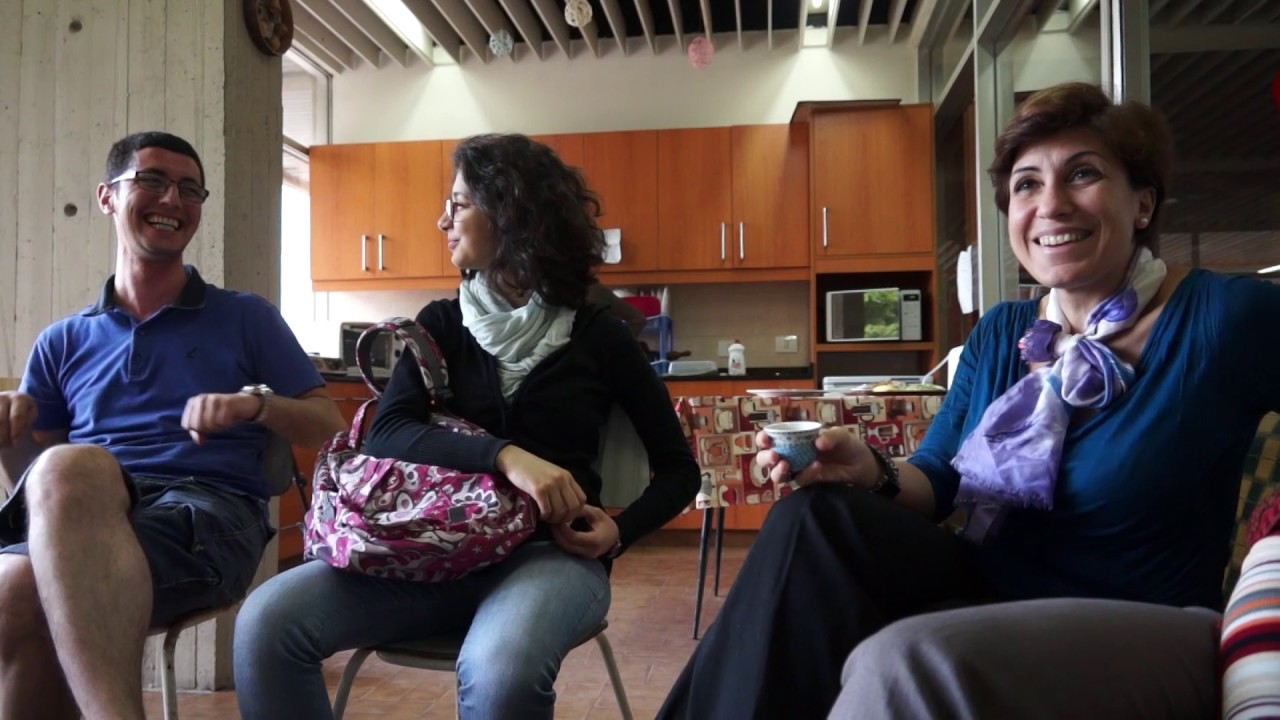


SiMO Information Leaflet
Studying in Beirut – A year of Ecumenical study at the Near East School of Theology
Friends of the NEST
Near East School of Theology (NEST)
Detailed Information about SiMO and SiMO+
Thank you for your interest in studying in Lebanon. You can also read Uwe Gräbe's review of more than 20 years of the study programme. Many of your questions will be answered here.
If you have any general questions, please use the contact form below. We are also happy to help you personally if you have any questions or require further information – by phone or by E-mail.
Study in Japan
Christians in Asia have always lived in a multireligious context. Christians in Germany are facing this challenge today.
In Asia, this social situation has resulted in the emergence of theological institutes, which deal in particular with interreligious dialogue and maintain contact with representatives of other religions. The goal of these institutes is to foster ecumenism. They offer to pass on their knowledge to interested parties from all over the world, and provide an opportunity to gain experience in an interreligious environment. This includes acquiring knowledge of how to set up interreligious and ecumenical learning, and how to effectively lead interreligious dialogue.

Interreligious Studies in Japan Programme
At the NCC Center for the Study of Japanese Religions in Kyoto, Japan, students from different fields can study the English Interreligious Studies in Japan Programme (ISJP). Participants must have completed basic studies in theology, religious pedagogy, social welfare, religious studies, and Japanese studies. Applications for the following year must be submitted by 15th November.



ISJP Information Leaflet
Interreligious Studies in Japan Programme at the NCC Center for the Study of Japanese Religions in Kyoto (German)
NCC Center for the Study of Japanese religions
During the study trip, which lasts several months, students will deal intensively with Japanese religions and the witness of the Christian minority in the country. As well as ecumenical learning, the curriculum also includes participation in Japanese social life and culture.
“We came back more sensitive. We were also more sensitive towards the religious and ecclesiastical context on our own doorstep, which is becoming increasingly diverse.”
Participant of the ISJP
Thank you for your interest in the study programmes in Japan. If you have any general questions, please use the contact form below. We are also happy to help you personally if you have any questions or require further information – by phone or by E-mail.
Study in India
Undergraduate and postgraduate students have the opportunity to enrol in a vibrant six-month interfaith study programme at the internationally renowned Henry Martyn Institute in Hyderabad. The programme is designed to deepen students’ awareness of their own cultural and religious context while fostering interfaith and intercultural learning. The curriculum includes topics such as the inculturation of Christianity in Asia, Christianity from an Indian perspective, Hinduism, Islam, and Jainism, complemented by excursions to local places of worship.
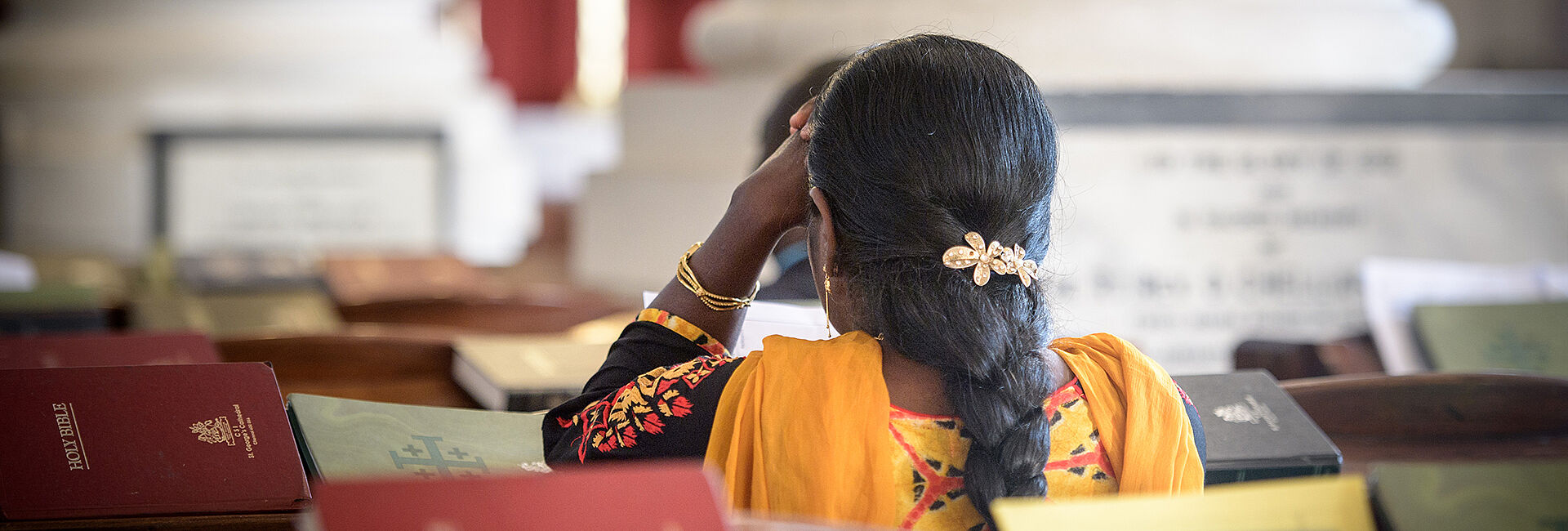
Information Flyer: Study Programme in India
Interreligious Study Programme in India at the Henry Martyn Institute in Hyderabad
Henry Martyn Institute
Thank you for your interest in the study programmes in India. If you have any general questions, please use the contact form below. We are also happy to help you personally if you have any questions or require further information – by phone or by E-mail.
Ecumenical Co-Workers
Active ecumenism requires exchange and contact. The Evangelical Mission in Solidarity (EMS) offers interested parties the opportunity to gain intercultural experience as ecumenical co-workers in a church within the EMS Fellowship. They work for several years as bridge-builders between the different churches and cultures. They have special qualifications, which are of great benefit to the respective churches – such as in the fields of theology, educational work and conservation.
“In a globalised world, we share our ideas and collaborate on God’s good work.”
Elizabeth Aduama
This exchange of personnel not only promotes ecclesial life locally, but also strengthens the solidarity within the EMS Fellowship. It takes place in three directions: North-South, South-North, and South-South. As well as placements lasting several years, the EMS also frequently arranges short-term assignments at various institutions within the member churches – for example, temporary teaching assignments for theology lecturers.
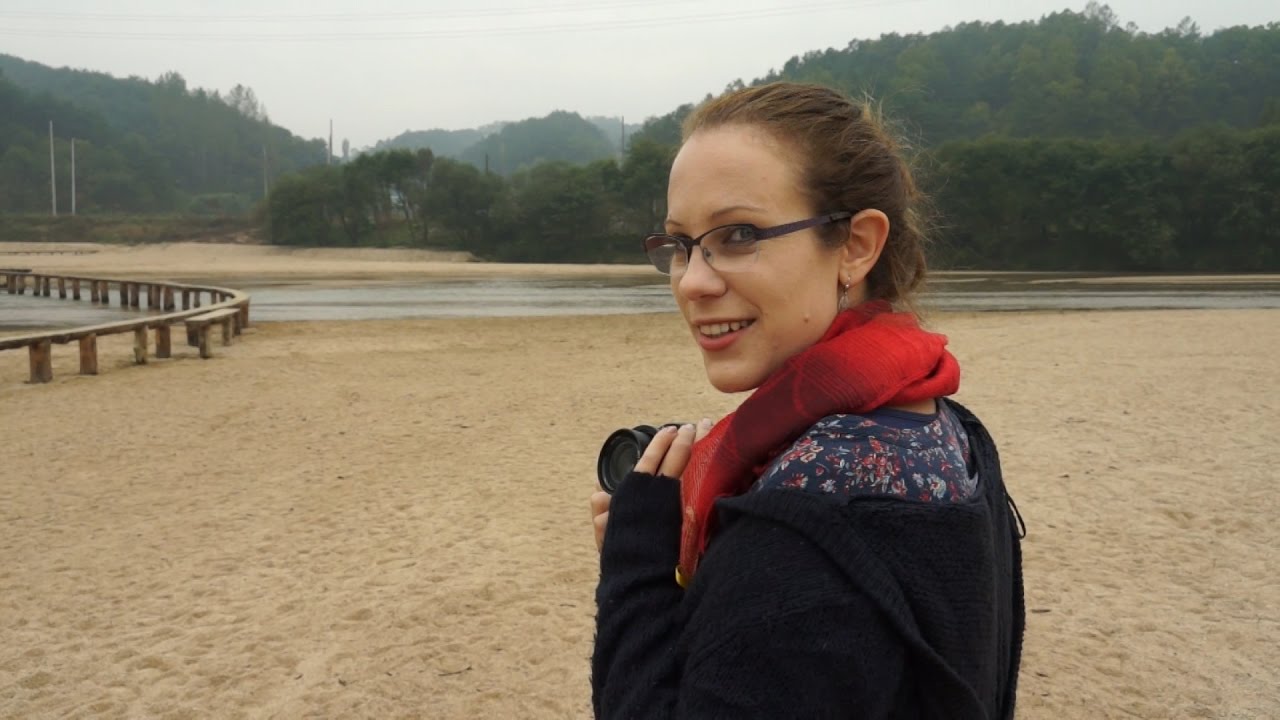
Criteria for Positions for Ecumenical Co-Workers in the EMS Fellowship
Most important information for applicants.
Thank you for your interest in ecumenical links. If you have any general questions, please use the contact form below. We are also happy to help you personally if you have any questions or require further information – by phone or by E-mail.
Eleanor McCormick
Head of Unit Intercultural Theology and Education, Women and Gender
+49 711 636 78 -33







